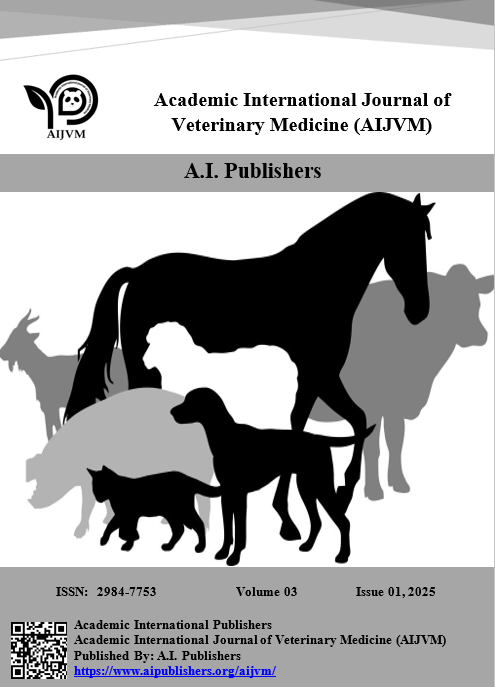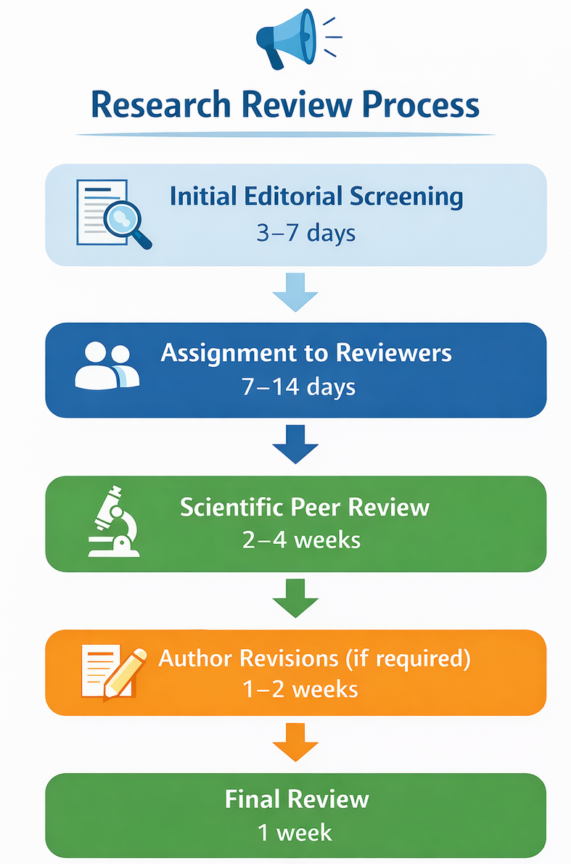Evaluating the Benefits and Challenges of Fish Oil-Enriched Diets in Aquaculture
DOI:
https://doi.org/10.59675/V125Abstract
Enriching diets, for fish with fish oil is important in aquaculture to enhance the value especially by adding omega 3 fatty acids like EPA and DHA. These nutrients are vital for the health of both fish and humans promoting heart health, cognitive function and anti-inflammatory effects. However the expensive nature and limited availability of fish oil create obstacles that affect the profitability and sustainability of aquaculture businesses. The environmental impact of producing fish oil from wild fish stocks raises concerns about overfishing and ecosystem disturbances. To combat these challenges researchers are exploring sources of omega 3 acids such as microalgae and genetically modified plants. Yet these alternatives face barriers related to production costs and consumer acceptance. The success of incorporating fish oil enriched diets hinges on how consumers perceive them and the demand in the market; effective communication about their health benefits and sustainability can drive this demand. Ultimately ensuring the long-term success of the aquaculture industry involves addressing environmental challenges linked to fish oil production so that it can keep up with the increasing need, for high quality nutritionally enhanced seafood products.
References
Barroso S, Pinto FR, Silva A, Silva FG, Duarte AM, Gil MM. The circular economy solution to ocean sustainability: Innovative approaches for the blue economy. Research Anthology on Ecosystem Conservation and Preserving Biodiversity: IGI Global; 2022. p. 875-901.
Toppe J. Farmed fish: a major provider or a major consumer of omega-3 oils. Inform. 2013;24:477-9.
Watters C, Iwamura S, Ako H, Deng D-F. Nutrition considerations in aquaculture: the importance of omega-3 fatty Acids in fish development and human health. 2012.
Al-Souti A, Al-Sabahi J, Soussi B, Goddard S. The effects of fish oil-enriched diets on growth, feed conversion and fatty acid content of red hybrid tilapia, Oreochromis sp. Food Chemistry. 2012;133(3):723-7.
Alagawany M, Elnesr SS, Farag MR, Abd El-Hack ME, Khafaga AF, Taha AE, et al. Omega-3 and omega-6 fatty acids in poultry nutrition: effect on production performance and health. Animals. 2019;9(8):573.
Glencross B, Fracalossi DM, Hua K, Izquierdo M, Mai K, Øverland M, et al. Harvesting the benefits of nutritional research to address global challenges in the 21st century. Journal of the World Aquaculture Society. 2023;54(2):343-63.
Panse ML, Phalke SD. World market of omega-3 fatty acids. Omega-3 fatty acids: Keys to nutritional health. 2016:79-88.
Šimat V. Valorization of seafood processing by-products. Valorization of agri-food wastes and by-products: Elsevier; 2021. p. 515-36.
Tompkins YH, Chen C, Sweeney KM, Kim M, Voy BH, Wilson JL, et al. The effects of maternal fish oil supplementation rich in n-3 PUFA on offspring-broiler growth performance, body composition and bone microstructure. Plos one. 2022;17(8):e0273025.
Ruby P, Ahilan B. An overview of climate change impact in fisheries and aquaculture. Climate Change. 2018;4(13):87-94.
Magoni C, Bertacchi S, Giustra CM, Guzzetti L, Cozza R, Ferrari M, et al. Could microalgae be a strategic choice for responding to the demand for omega-3 fatty acids? A European perspective. Trends in Food Science & Technology. 2022;121:142-55.
Usher S, Haslam R, Sayanova O, Napier JA, Betancor M, Tocher DR. The supply of fish oil to aquaculture: a role for transgenic oilseed crops? World Agriculture. 2015;5(1):15-23.
Downloads
Published
Issue
Section
License
Copyright (c) 2023 Academic International Journal of Veterinary Medicine

This work is licensed under a Creative Commons Attribution 4.0 International License.





